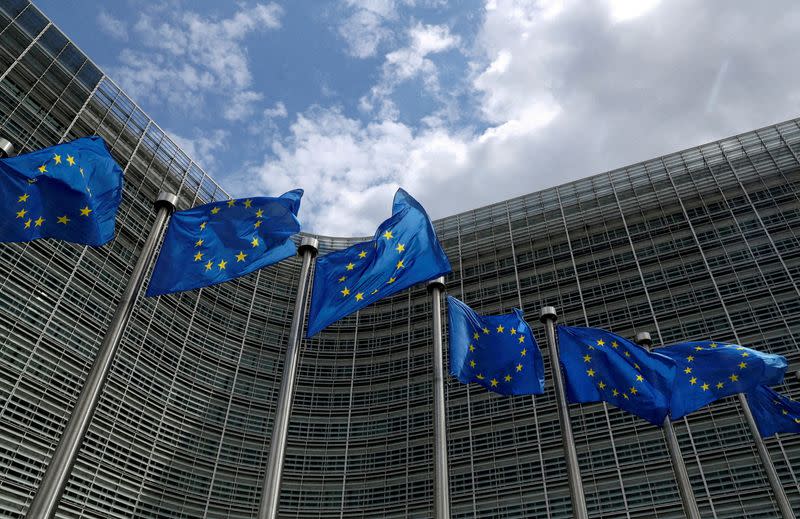Exclusive-CEE countries to ask EU to extend Ukrainian grain import ban

By Krisztina Than
BUDAPEST (Reuters) - Five Central European EU members will jointly ask the EU on Wednesday to extend a ban on Ukrainian grain imports beyond a Sept. 15 deadline to avoid major market disruptions, Hungary's farm minister told Reuters.
Bulgaria, Hungary, Poland, Romania and Slovakia became alternative transit routes for Ukrainian grain to help offset slowed exports via the country's Black Sea ports after the Russian invasion.
The collapse of a deal allowing Black Sea exports this week could lead to increased grains flows and bottlenecks in the five countries, the Central European states fear.
The European Union in May allowed the five countries to ban domestic sales of Ukrainian wheat, maize, rapeseed and sunflower seeds, while allowing transit of such cargoes for export elsewhere, including to other EU countries. That ban is set to end on Sept. 15.
Heading for the meeting in Warsaw, Minister of Agriculture Istvan Nagy said the five countries would ask for this import ban to remain on four Ukrainian products - wheat, maize, rapeseed and sunflower seeds - for now, with transit shipments continuing.
However, he said they would also discuss an option where countries could individually ask the EU to add products to the ban list.
"We are going to Warsaw to solidify the cooperation of the five countries and sign a declaration or agreement in which we will ask the EU to extend the ban beyond Sept. 15," Nagy said.
He noted the maize and sunflower harvests have not started in Hungary while there is still some Ukrainian grain left in storage.
Earlier bottlenecks trapped millions of tons of grains in the five countries, pushing down prices for local farmers.
He said the majority stance among the five members was for the ban to remain until Dec. 31 and this is what Hungary supported as well.
"Obviously, Ukraine, given its sheer size, anything it produces and exports to Europe, that upsets the market. The situation is the same with chicken meat, eggs, honey," he said.
"For the time being, the four products will remain, we are striving to preserve the ban on these four products, and probably there will be an agreement that countries, individually, can ask the EU to impose a ban on additional products...this is what we will talk about."
Accusing Russia of using grain as "ammunition", Polish Agriculture Minister Robert Telus said on Tuesday that Warsaw was willing to improve transit through Poland but that the EU needed to help with infrastructure.
Nagy said land-based transport of grains was expensive, and he suggested the EU should offer a progressive transit fee subsidy to Ukraine or the shipping companies to allow grains to be shipped to alternative ports, to avoid a burden on European markets.
(Reporting by Krisztina Than; editing by Jason Neely)


